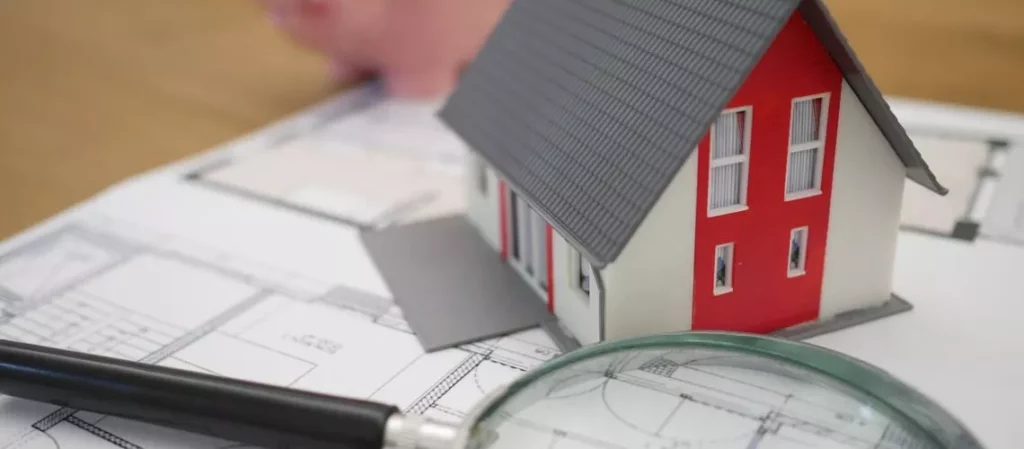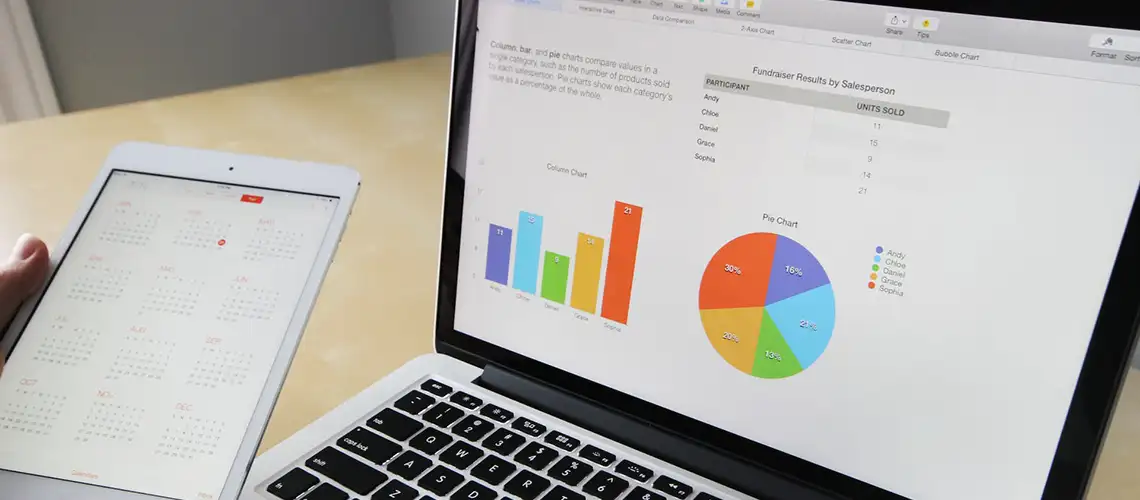Desktop Property Valuations Across Australia
Welcome to Desk Property Valuations Australia
our Partner for Desktop Property Valuations Across the Nation
Services We Offer
Residential Desktop Valuations
Commercial Desktop Valuations
Insurance Valuations
Rates Objections Valuations
Family Law Valuations
Other Valuation Reports
Why Choose Us?
Licensed & Experienced Valuers
Our national panel of valuers are fully licensed and have extensive valuation experience across all sectors.
Australia-Wide Coverage
We provide desk valuations for properties nationwide, covering metro and regional areas across all states and territories.
Quick Turnaround Time
Our valuations are completed promptly so you can receive your report in the fastest possible time.
Compliant & Defendable Reports
Our reports comply with industry standards and can be used for various legal purposes. We are accountable for our work.
Competitive Rates
As a tech-enabled digital business we offer very competitive rates on desktop valuations. Contact us for a quote.
Valuation News

Why Is a Business Valuation in Sydney Important Before Mergers?
Mergers are major turning points for any business — bringing both opportunity and risk. Whether you’re a startup looking to join forces with a larger company or an established enterprise merging for growth, obtaining a professional Business Valuation in Sydney is not just advisable — it’s essential.
Valuation lays the financial groundwork for a successful merger by ensuring transparency, accuracy, and mutual understanding between all parties involved.
What Is a Business Valuation?
A business valuation determines the economic value of an enterprise. It assesses tangible assets like inventory and property, as well as intangible factors such as brand reputation, intellectual property, customer base, and future earnings potential.
In Sydney’s dynamic business environment, where markets can shift rapidly, valuation provides an evidence-based foundation for decision-making.
Why Is Business Valuation Essential Before a Merger?
Ensures Fair Negotiations
In any merger, understanding the true value of your business — and the one you’re merging with — creates a level playing field. Valuation helps avoid over- or undervaluing assets, giving both parties a strong footing during negotiations.
Helps Identify Synergies and Gaps
A thorough valuation doesn’t just look at dollar figures. It can uncover operational overlaps, growth opportunities, or risk areas that affect how well two businesses will integrate.
Supports Legal and Regulatory Compliance
Sydney-based mergers often involve complex legal frameworks and stakeholder obligations. A business valuation ensures compliance with local laws, ASIC regulations, and accounting standards — especially when shareholder equity is involved.
Builds Stakeholder Confidence
Investors, board members, and partners need assurance that the merger is grounded in solid data. A formal valuation provides transparency and can help secure buy-in from key stakeholders.
Strengthens Strategic Planning
With a current valuation in hand, you can plan your next steps more strategically. Whether it’s post-merger integration, future capital raising, or structural changes, valuation informs smarter decision-making.
Key Components in a Sydney Business Valuation
- Financial Performance: Revenue, profit margins, EBITDA
- Market Position: Competitive landscape and share
- Assets & Liabilities: Tangible and intangible assets
- Growth Potential: Forecasts and scalability
- Risk Factors: Industry volatility, legal exposure
A local expert will also account for Sydney’s unique market conditions, regulatory environment, and commercial trends.
When Should You Schedule a Valuation?
Ideally, a valuation should occur at the early stages of merger talks. This gives both sides time to review and negotiate based on real figures rather than assumptions. It’s also helpful during due diligence, contract structuring, and for satisfying tax and legal requirements.
Who Should You Trust?
It’s important to engage with qualified and independent valuers who understand the nuances of the Sydney business landscape. A reputable Business Valuation Sydney firm will tailor the assessment to your industry and transaction type, whether you’re a tech startup, law firm, or manufacturing enterprise.
Conclusion
Mergers are high-stakes events that demand clarity, fairness, and informed strategy. A professional business valuation in Sydney serves as your safeguard — protecting your financial interests and laying the foundation for a merger that drives long-term success. Before you take the next big step, make sure you understand exactly what your business is worth.

Property Valuation for Inheritance Purposes in Western Australia
If you’ve inherited property in Western Australia, a professional valuation is more than just a number—it’s a critical step in managing the estate, ensuring tax compliance, and fairly distributing assets among beneficiaries.
This article explains how property valuation for inheritance works in WA, when it’s required, who should provide it, and how it supports legal and financial processes such as probate and capital gains tax.
Why You Need a Property Valuation for Inheritance in WA
A valuation is commonly needed to:
- Support an application for Probate or Letters of Administration
- Determine the market value at the date of death for capital gains tax (CGT) purposes
- Facilitate fair asset distribution among beneficiaries
- Provide evidence in family provision claims or disputes
- Assist in selling or transferring the property out of the estate
In WA, a valuation ensures executors meet their legal obligations and protects all parties involved in the estate.
What Is the Relevant Valuation Date?
The property must be valued as at the date of death of the deceased. This becomes:
- The cost base for CGT if the property is later sold
- The value reported in probate applications
- A reference point for beneficiary distribution
If the property is sold shortly after death, the sale price may reflect market value. However, if there’s a delay or dispute, a formal retrospective valuation is preferred.
Who Can Provide an Inherited Property Valuation in WA?
The valuation must be performed by a:
- Certified Practising Valuer (CPV)
- Member of the Australian Property Institute (API)
- Independent and qualified to conduct retrospective valuations
Real estate agent appraisals are not suitable for probate or legal purposes as they lack formal valuation status.
What’s Included in a Deceased Estate Valuation?
A formal valuation for inheritance purposes includes:
- The valuation date (typically date of death)
- Full description of the property
- Comparable sales evidence from the relevant timeframe
- Methodology used (typically direct comparison)
- Market commentary
- The valuer’s qualifications and signature
The report can be used for probate applications, ATO reporting, or legal challenges.
How Is an Inherited Property Valued in WA?
Most deceased estate properties are valued using the direct comparison approach, where the valuer assesses:
- Recent sales of similar properties in the same suburb
- Land size, zoning, and improvements
- Property condition at the time of death
- Location, views, access, and amenities
Valuers may rely on historical listings, photographs, or estate agent records to determine the condition of the property at the time of death.
Probate and the Role of Valuation in WA
In Western Australia, applying for probate or letters of administration through the Supreme Court requires declaring the gross value of the estate. For properties, this means providing a justified market value.
Executors who fail to report accurate values may face:
- Legal disputes
- Beneficiary objections
- Tax penalties if CGT is not correctly calculated later
A valuation ensures transparency and fairness throughout the process.
Capital Gains Tax (CGT) and Inherited Property
If the beneficiary later sells the property, CGT may apply. The key points include:
- The value at date of death becomes the cost base
- CGT only applies to gains made after inheritance
- If the property is sold within two years, exemptions may apply (main residence rule)
- A valuation protects beneficiaries from overpaying CGT in future
Consulting an accountant alongside the valuer is recommended to manage CGT effectively.
Cost of Inherited Property Valuation in WA
| Property Type | Estimated Fee Range |
| Standard residential property | $600 – $1,200 |
| Rural or lifestyle properties | $1,500 – $3,000 |
| Commercial or multi-use assets | $2,000 – $4,000+ |
Fees may vary depending on location, complexity, and whether a retrospective or current valuation is required.
How to Arrange a Valuation
- Contact a WA-based certified valuer
- Provide the deceased’s name and date of death
- Share any relevant documents (wills, property photos, agent letters)
- Request a retrospective market valuation for probate or CGT
- Use the report in your dealings with the Supreme Court, ATO, or estate lawyers
Conclusion
Inheriting property in WA involves not just emotion, but also legal and financial responsibilities. A professional property valuation provides a clear, fair, and defensible value that can be used for probate, tax, and estate planning.
Whether you’re acting as an executor or a beneficiary, getting the property valued by a qualified, independent valuer ensures the estate is administered smoothly, accurately, and in compliance with WA law.

Everything You Need to Know About Property Valuation in Sydney
Understanding the value of your property is crucial whether you are planning to sell, buy, refinance, or simply need an updated assessment for financial planning. In Sydney’s dynamic real estate market, professional property valuations provide a clear and accurate picture of your property’s worth. This guide explores the importance of property valuation in Sydney and how you can benefit from expert services.
Why is Property Valuation Important?
Property valuation is the process of determining the market value of a property based on various factors such as location, condition, size, and market trends. Accurate valuations are essential for several reasons:
- Selling Your Property: Knowing the market value helps you set a competitive price, attracting potential buyers while ensuring you receive a fair return on your investment.
- Buying a Property: An accurate valuation ensures you are paying a fair price based on the property’s true worth.
- Refinancing: Lenders require an up-to-date valuation to approve refinancing applications, ensuring the loan amount aligns with the property’s value.
- Financial Planning: Valuations are crucial for estate planning, tax calculations, and other financial decisions, providing a clear understanding of your property’s value.
- Insurance: Accurate valuations help determine the right insurance coverage, protecting your investment from potential losses.
The Valuation Process
The process of valuing a property involves several key steps to ensure accuracy and reliability:
- Inspection: A thorough inspection of the property to assess its condition, features, and any improvements or renovations.
- Data Collection: Gathering information on the property’s location, land size, floor area, and comparable sales in the area.
- Market Analysis: Analysing current market conditions, trends, and comparable property sales to determine the property’s market value.
- Reporting: Preparing a comprehensive report that outlines the valuation methods used and the final assessed value.
Why Choose Professional Valuation Services?
While online tools and estimates can provide a general idea of a property’s value, they lack the accuracy and reliability of professional valuations. Our specialists in property valuation Sydney have extensive experience and local market knowledge to deliver precise and dependable valuations. They use industry-standard methods and provide detailed reports tailored to your specific needs.
Contact the Experts
If you need an accurate valuation of your property, our team of experts is here to help. We offer comprehensive property valuation services in Sydney and are dedicated to providing you with the most reliable and detailed assessments. Visit our property valuation Sydney page to learn more and to contact our specialists.
Understanding the value of your property is essential for making informed real estate decisions. Contact us today to ensure you receive the most accurate and professional valuation services.

Understanding Different Mortgage Valuation Types: A Guide for Australian Homebuyers
When embarking on the journey of buying a home in Australia, understanding the ins and outs of mortgage valuations is crucial. These assessments help lenders determine the value of the property being purchased, affecting how much they are willing to lend. There are several types of mortgage valuations, including drive-by valuations, desktop valuations, and full appraisals. Each serves a unique purpose and is required under different circumstances. This article aims to demystify these mortgage valuation types, aiding buyers and working with mortgage brokers in Brisbane and across Australia.
What Is a Mortgage Valuation?
A mortgage valuation is an assessment carried out to determine the value of a property. This valuation is used by lenders to ensure the property is worth the loan amount being requested. It’s important to note that a mortgage valuation is for the lender’s benefit, not the buyer’s. For a more detailed analysis of the property’s condition, buyers may consider a building survey or a homebuyer report.
Types of Mortgage Valuations
The type of mortgage valuation required can vary based on the lender’s policy, the nature of the property, and the specifics of the mortgage application. Below are the most common types:
Drive-By Valuations
Drive-by valuations are exactly as they sound. In this method, a valuer does not enter the property but instead assesses it from the outside. This type of valuation is quicker and less expensive than more in-depth appraisals. Drive-by valuations are typically used in straightforward lending scenarios, where the risk to the lender is perceived to be low.
Desktop Valuations
A desktop valuation is conducted without the valuer visiting the property in person. Instead, they use online resources, such as property databases and listings, to estimate the property’s value. Desktop valuations are efficient and cost-effective, making them popular for refinancing and low-risk mortgage applications.
Full Appraisals
A full appraisal is the most comprehensive type of mortgage valuation. It involves a detailed inspection of the property’s interior and exterior, assessment of the property’s condition, and a review of local market conditions. Full appraisals provide the most accurate estimation of a property’s value but are also the most time-consuming and expensive. They are often required for higher-risk lending scenarios, such as when the borrower is seeking a high loan-to-value ratio or the property is unique.
When Each Valuation Type Is Required
Understanding when each type of valuation is required can help borrowers prepare for the mortgage application process. Here’s a general guide:
- Drive-By Valuations: Used for low-risk scenarios, such as refinancing an existing loan or when the loan amount is a small percentage of the property’s value.
- Desktop Valuations: Suitable for low-risk applications and refinancing, especially when the lender has previous knowledge of the property or when recent, reliable sale data is available.
- Full Appraisals: Necessary for new purchases, particularly in high-risk situations or when the property is unusual in some way that affects its value.
Working with a Mortgage Broker in Brisbane
Navigating the complexities of mortgage valuations can be daunting. This is where working with a reputable mortgage broker in Brisbane can be invaluable. A mortgage broker can offer guidance on the valuation process, helping you understand which type of valuation may be required for your specific situation. They can also assist in finding the most suitable lender and mortgage product for your needs, making the home buying process smoother and more efficient.
Conclusion
Understanding the different types of mortgage valuations and when they are required is essential for any prospective homebuyer. By familiarising yourself with drive-by, desktop, and full appraisals, you can approach the mortgage application process with confidence. Remember, working with a mortgage broker can provide additional support and expertise, ensuring you find the right mortgage solution for your needs.
- Drive-By Valuations: Quick, less expensive, suitable for low-risk lending scenarios.
- Desktop Valuations: Conducted online, efficient, ideal for refinancing and low-risk applications.
- Full Appraisals: Comprehensive, detailed, required for new purchases and high-risk situations.
Whether you’re working with a mortgage broker in Brisbane or navigating the property market elsewhere in Australia, a clear understanding of mortgage valuation types will serve as a valuable asset in your home buying journey.

How Changing Interest Rates Affect Property Valuations: A Guide
The fluctuations in interest rates are a significant factor in the Australian economy that can have profound impacts on property values. Understanding how these changes influence property valuations is crucial for homeowners, investors, and potential buyers in the real estate market.
The Relationship Between Interest Rates and Property Value
Interest rates, set by the Reserve Bank of Australia (RBA), are a powerful tool in the economy, influencing various sectors, including the real estate market.
How Interest Rates Influence Property Valuations
- Borrowing Costs: Lower interest rates reduce the cost of borrowing, increasing demand for property and driving up prices.
- Investment Appeal: When interest rates are low, real estate becomes an attractive investment compared to other low-yielding options.
- Economic Growth: Lower interest rates can stimulate economic growth, leading to higher property demand and value.
Conversely, higher interest rates can reduce demand and slow down the property market, leading to lower property valuations.
Interest Rates and Their Direct Impact on Property Valuations
Interest rates directly affect property valuation in several ways:
- Affordability: Changes in interest rates impact how much people can afford to borrow, thus influencing their buying power.
- Market Sentiment: Interest rate trends can affect consumer confidence, which in turn influences the real estate market.
- Rent Yields: For investment properties, changes in interest rates can impact rental yields, thus affecting property value.
Examining Historical Trends
A look at historical data shows a clear correlation between interest rate movements and property market performance in Australia. Periods of low interest rates often see a surge in property valuations and vice versa.
- 2008 Global Financial Crisis: Post-crisis, the RBA’s decision to lower interest rates led to a boost in property values.
- Early 2020s Economic Changes: Record-low interest rates resulted in increased property demand and valuation.
Mitigating the Impact of Interest Rate Changes
To mitigate the impact of fluctuating interest rates on property valuations, homeowners and investors can:
- Fixed-Rate Mortgages: Consider locking in a fixed-rate mortgage to guard against rising interest rates.
- Diversification: Diversify investments to reduce reliance on property market performance.
- Regular Valuations: Keep up with regular property valuations to understand your property’s worth in the current market.
The Future Outlook
Predicting future interest rate movements and their impact on property valuations can be challenging. However, staying informed about economic indicators and market trends can help in making more accurate predictions.
In summary, interest rates play a pivotal role in determining property valuations in the Australian market. By understanding this relationship, stakeholders in the real estate market can make more informed decisions and strategically plan for future changes.

How Valuations Impact Sale Price: The Interplay of Appraised Value, Comps, and Market Forces
Understanding how property valuations influence sale prices is critical for both buyers and sellers in the Melbourne real estate market. By dissecting the various factors involved, we can shed light on how to optimise sale prices and make informed decisions.
Understanding the Appraised Value
The appraised value is an unbiased estimate of a property’s market value. It is typically conducted by a certified appraiser who takes into account multiple factors like property condition, location, and recent sale prices of comparable properties.
Why Appraised Value Matters
Influences Lending: Financial institutions use appraised value to determine how much they can lend for a property.
Price Negotiations: Both buyers and sellers refer to this value during the price negotiation stage.
Property Taxes: Local governments may use appraised values to calculate property taxes.
The Role of Comps in Property Valuation
Comps, or comparable sales, are recent transactions involving properties similar to the one being valued. They serve as a vital benchmark in setting the appraised value.
How to Choose Accurate Comps
- Proximity: Properties within a 1-3 km radius
- Similarity: Comparable size, condition, and features
- Timing: Sales within the last three to six months
Adjusting Comps
Sometimes, properties have unique features that need special attention. In these cases, value adjustments are made to comps to align them more closely with the property in question.
Supply and Demand: The Market Dynamic
The concept of supply and demand is fundamental in real estate marketing and pricing. A high demand coupled with low supply generally pushes prices up, while the inverse tends to drive prices down.
Indicators of Demand
Population Growth: An increase in population often boosts demand.
Economic Factors: Low-interest rates and high employment rates can stimulate demand.
Indicators of Supply
New Developments: An influx of new properties can increase supply.
Seasonal Trends: Certain seasons may see a higher listing of properties, affecting supply.
Integrating Valuation and Market Forces
Successfully selling a property for its maximum value involves synthesising the appraised value with current market conditions. This involves:
- Accurate Property Appraisal
- Comprehensive Comps Analysis
- Assessing Current Supply and Demand
- Dynamic Real Estate Marketing Strategies
By understanding and applying these components, both buyers and sellers can navigate the property market more effectively, leading to optimised sale prices and informed investments.

Understanding the Role of Valuations When Insuring a Property
Insuring a property is an essential step in protecting your valuable asset. To ensure that you have proper coverage, it is crucial to understand the role of property valuation Melbourne in the insurance process. In this guide, we will explore the importance of property valuation in insurance, specifically focusing on the process in Melbourne, Australia.
Why is Property Valuation Important?
Property valuation plays a vital role when it comes to determining the insurance coverage for a property. It involves assessing the value of the property and its contents, which helps insurance companies in calculating the premiums and determining the coverage limits. Accurate property valuation ensures that the property is insured to its full replacement value, minimizing the risk of underinsurance.
The Process of Property Valuation for Insurance Purposes
In Melbourne, Australia, property valuation for insurance purposes follows a specific process. It typically involves the following steps:
1. Inspection
A trained valuer visits the property and conducts a thorough inspection. This includes assessing the property’s size, condition, features, and any unique characteristics that might affect its value.
2. Market Analysis
The valuer then analyses the current real estate market in Melbourne to determine the property’s market value. This involves considering factors such as location, recent sales data, and market trends.
3. Replacement Cost Estimation
To calculate the property’s replacement cost, the valuer takes into account the construction costs, materials used, and any additional features or upgrades. This ensures that the property is insured for its full rebuilding or repair costs.
4. Documentation
Once the valuation process is complete, a detailed report is prepared. This report includes the property’s current market value, replacement cost, and any relevant information that may affect the insurance coverage.
The Importance of Accurate Valuations
Accurate property valuations are crucial for several reasons. Firstly, they help insurance companies in determining the correct premium to charge for insuring the property. Secondly, they ensure that the property is insured for its appropriate value, significantly reducing the risk of underinsurance. Lastly, accurate valuations provide the property owner with peace of mind, knowing that their asset is adequately protected.
Avoiding Pitfalls: Underinsurance and Over insurance
Underinsurance and over insurance are common pitfalls that property owners must avoid. Underinsurance occurs when a property is insured for an amount less than its actual value. In the event of a claim, the insurance pay-out may not be enough to cover the full cost of rebuilding or repairing the property. On the other hand, over insurance means that the property is insured for more than its actual value, resulting in higher premiums without providing any additional benefits. Accurate property valuations help property owners strike the right balance and avoid these pitfalls.
Understanding the role of property valuation in the insurance process is crucial for property owners. By ensuring accurate valuations, property owners can protect their assets effectively and avoid the risks of underinsurance or over insurance. In Melbourne, Australia, property valuations conducted by trained professionals play a vital role in determining the insurance coverage for a property. So, if you own a property in Melbourne, it’s essential to get a property valuation done to ensure that you have the right insurance coverage in place to safeguard your valuable asset.

12 Tips For Appraisal Day: How to Prepare for a Successful Appraisal
An appraisal plays a significant role in the buying and selling process of a property. It provides an expert assessment of the property’s value, helping both buyers and sellers determine a fair market price. To ensure a successful appraisal, proper preparation is key. In this article, we will provide you with 12 valuable tips to help you prepare for appraisal day. From decluttering to having essential documents ready, these tips will ensure a smooth and stress-free appraisal process.
1. Clean and Declutter
Before the appraiser arrives, it’s essential to clean and declutter your property. A tidy and organised home creates a positive impression and allows the appraiser to assess the property accurately.
2. Repair and Fix Maintenance Issues
Address any visible maintenance issues such as leaky faucets, chipped paint, or broken windows. Keeping your property well-maintained demonstrates that you care for your home and can positively impact the appraisal value.
3. Enhance Curb Appeal
First impressions matter, so prioritise enhancing your property’s curb appeal. Trim the hedges, mow the lawn, and add a fresh coat of paint to the front door to make your home look inviting and well-maintained.
4. Provide Access to All Areas
Ensure that the appraiser has access to all areas of the property, including the backyard, basement, garage, and additional storage spaces. Unlock all doors and gates and remove any obstacles that might hinder the appraiser’s access.
5. Compile a List of Improvements
Make a list of any recent improvements or renovations you’ve made to the property, including the dates and costs. This information helps the appraiser assess the value of these updates accurately.

Residential Property Valuations: A Comprehensive Guide
When it comes to the world of real estate, property valuations play a crucial role in determining the worth of residential properties. Whether you are buying or selling a home, understanding the value of the property is essential. In this comprehensive guide, we will explore the process of valuing residential properties in Australia and shed light on the factors that influence the Australia housing market. From property valuations to home appraisals, we will cover it all.
The Importance of Property Valuations
Property valuations provide an objective assessment of the current market value of a residential property. They help both buyers and sellers make informed decisions and set realistic expectations. For sellers, a valuation can guide them in pricing their property competitively, maximising their chances of a successful sale. For buyers, it ensures that they are making a fair investment and can negotiate confidently.
The Australia Housing Market
The Australia housing market is a dynamic and ever-changing landscape. Property valuations help individuals navigate through this market by providing accurate and up-to-date information about property values. Understanding the Australia housing market trends and cycles is crucial for both buyers and sellers in making informed decisions.
Knowing When to Get a Property Valuation
There are several scenarios where getting a property valuation is recommended. These include:
1. Buying or Selling a Home
Whether you are a buyer or a seller, a property valuation is essential. It helps sellers set the right listing price, while buyers can assess if the asking price aligns with the true value of the property. Valuations provide the necessary information to negotiate with confidence in the Australia housing market.
2. Refinancing or Applying for a Mortgage
When refinancing a mortgage or applying for a new one, lenders often require a property valuation to assess the value of the property being used as collateral. This valuation ensures that the loan amount is based on the property’s current market value, reducing risks for both borrowers and lenders.
3. Property Investment
Investing in residential properties requires a thorough understanding of their values. Property valuations help investors identify opportunities, analyse potential returns, and make informed decisions in the Australia housing market.

When to Get a Valuation
In the world of real estate and property transactions, knowing when to get a valuation is crucial. Whether you are buying, selling, divorcing, inheriting, need a loan, or dealing with taxes, a property valuation can provide you with the necessary insights to make informed decisions. In this article, we will explore the different scenarios when a valuation is recommended and the reasons behind it.
1. Selling a Property:
If you are considering selling your property, getting a valuation is a smart move. A valuation report will help you determine the market value of your property, which can guide you in setting the right asking price. By understanding the current market conditions and the worth of your property, you can avoid overpricing or under-pricing, leading to a successful and profitable sale.
2. Buying a Property:
Before making a purchase, it is advisable to get a property valuation. By engaging the services of a professional valuer, you can assess whether the asking price aligns with the true value of the property. This evaluation will help you make an informed decision and negotiate with confidence, ensuring you get the best deal possible.
3. Divorce Proceedings:
In cases of divorce, property valuation becomes crucial, especially when there is a need to divide the assets. Valuating the property ensures that both parties receive a fair share based on the current market value. This objective assessment minimises conflicts and provides a transparent basis for the division of assets, facilitating a smoother and fairer process.
4. Inheritance Purposes:
When property is inherited, it is essential to get a valuation. This valuation report helps determine the value of the inherited property, whether it is for tax purposes or transferring ownership. Accurate valuation ensures that the proper taxes are paid and the distribution of the inheritance is carried out correctly, avoiding any legal complications.

